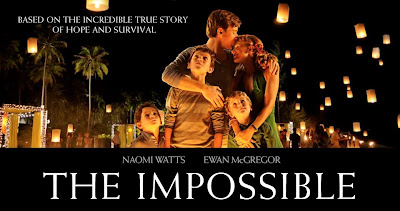Guns, Dogs, and White Rabbits
I am curious what Martin McDonagh's fascination with white bunnies is. I've seen three of his films; his fantastic Oscar-nominated In Bruges, his Oscar-winning short Six Shooter, and now Seven Psychopaths. Two of them contain white rabbits in a more than arbitrary way, and both depict the rabbits in scenes of occurring or impending violence. Anyway, I digress and simply note it as a curious visual.
In Bruges was a hilarious blend of shocking violence and dark humor; the performances, particularly those from Brenden Gleeson and Colin Farrell (who won a Golden Globe for his work) were simply splendid. Farrell returns here, as probably what I would characterize as the main character, if I had to pick one. Seven Psychopaths demonstrates the same violent black comedy as its predecessor, along with an impeccable ability on behalf of McDonagh to write plots and subplots that weave, intertwine, and hurtle toward a climax we never know how it'll resolve, and yet once it does, we realize there was no other way. Of any working filmmaker, McDonagh has one of the most gifted, innate abilities to tell a story that involves a myriad of unique, diverse characters, all of whom are related, and end the story with an unpredictable, but inexorable logic that both abides and transcends conventional three-act story-telling.
The plot. Seven Psychopaths unsurprisingly tells the story of seven psychopaths, although that may not be as clear cut as it seems. Let's just say that the trailer and title don't exactly tell the truth. I'll leave it to you to watch the movie and decipher what that means. Among these psychopaths, all with extraordinarily different personalities, are Marty (Colin Farrell), an alcoholic screenwriter; Billy (Sam Rockwell), a dog kidnapper; Hans (Christopher Walken), Billy's partner in dog-napping; and Charlie (Woody Harrelson), a man who has his dog stolen by Billy. Billy is best friends with Marty, and desperately wants to help him write his next film, titled "Seven Psychopaths." He comes up with stories and characters, which may not be entirely fictitious, in an effort to help Marty. His partner-in-crime is Hans, a pacifist, who returns the dogs to their owners after Billy has dog-napped them; often receiving the hefty reward from the owner that beloved Beverly Hills dogs are worth, which he splits with Billy.
One day, however, Billy steals the wrong dog, a Shih Tzu belonging to Hans. Hans - a hilariously emotional but still viciously violent man who will stop at nothing to get his cherished Shih Tzu back. That is all the further the trailers describe the plot and all the further I shall describe it.
McDonagh has a knack for creating fascinating characters involved in a labyrinthian plot full of twists and turns, full of character motivations, many hidden that eventually reveal themselves to drive the plot in a different direction toward an explosive and logical climax, much like the third act of In Bruges. Where In Bruges had about five truly dynamic and unique characters to play with, here McDonagh must understand and evoke the motivations of at least ten different characters. And boy, does he play with them to fascinating, often highly unpredictable, levels. Therein lay the greatest joy of this film; it is so wildly funny, darkly violent, and its characters exhibit such complexity in their motives, yet it resolves with such determined practicality and gumption.
The performances, like his former film, are immensely entertaining. Sam Rockwell, as perhaps the most complex and fascinating character in the film, steals every scene he's in, which is many. The way he drives the plot toward its beautiful climax, even with its meta-reference near the mid-point, is still unforeseeable and yet intriguingly watchable. Walken, as likely the next most complex character, is calm, confident, and comical, moving with the wisdom of Gandhi yet still speaking with the hilarity Walken has become so adept at conjuring. Harrelson, who has always been a fine actor, but in recent years has turned in some spectacular performances (The Messenger, Rampart), is both equally dangerous and vulnerable; hilarious and deadly serious; trustworthy and unbelievable. And Farrell, as the lead, carries the film in fine form, surrounded by a brilliant cast. He projects the same malaise and anxiety he did in In Bruges, while still being a convincing alcoholic on the brink of falling apart.
Seven Psychopaths is one of the best films of 2012. Had the Oscar nominations been left to me, this would have received three: Picture, Original Screenplay, and Supporting Actor (Rockwell). In Bruges was somewhat of a pleasantly unexpected surprise when it received a Best Original Screenplay nomination in its year. McDonagh clearly has favor in the Academy; having one once for his short and receiving a nomination for his freshman feature. Unfortunately, I think his films are too divisive with their brutality and dark humor to gain mainstream appeal. Nonetheless, this is a perfect example of a sophomore success. I eagerly await McDonagh's next film.





















